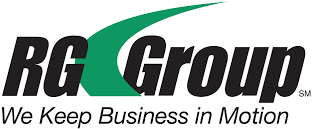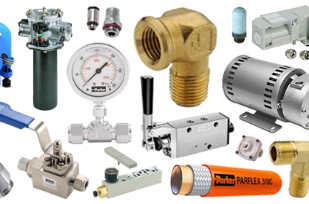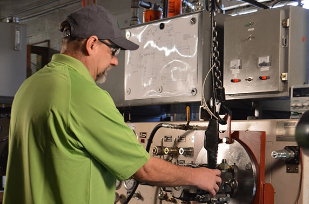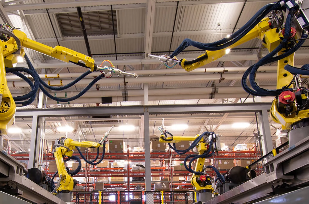Producing 18.2% of the goods worldwide, US manufacturing is larger than any other country in the world.
Despite that size, outsourcing has become a trend in manufacturing. It’s a popular strategic tool for more than cost savings. In fact, the average manufacturer today outsources between 70% and 80% of their product.
Both small and large businesses that outsource their manufacturing experience issues. Before looking for a company, you should be aware of the common problems with outsourcing.
Offshore and domestic, we’ve listed all the common issues below.
Why Outsource Manufacturing?
Outsourcing can take place either offshore or domestically. The outsourced work can include both manufacturing and support functions.
Outsourcing the manufacturing process can allow companies to grow in ways they otherwise couldn’t. It provides the economies of scale that allows them to effectively compete.
Common Problems With Outsourcing Manufacturing
Big and small companies alike face problems with outsourcing. We’ve collected the most common issues below and explained how to overcome them.
Knowing How To Research CMS
The first challenge in outsourcing is knowing what to looks for. You have to consider the obvious items such as geographic location and technical capabilities. But you’ll also have to do your research around material management capability, quality control, and over financial health.
Not looking into these items prior to selecting a company can lead to problems down the line. It can impact costs, schedules, and the quality of your finished product.
Understand your business strategy and how it aligns with the manufacturer in every small detail. To accomplish this, engage your operations and manufacturing teams to create a vision.
You should also include other key stakeholders in the planning and strategy process. This includes your product management, quality control, engineering, and finance teams.
Selecting the Right Company for your Business
While similar to knowing your strategy, selecting the right company for the amount of business you can offer is so important it’s worth its own explanation. This problem is especially important for small business and businesses looking to scale.
Some manufacturers may have the capabilities you need but have no interest in the dollar amounts you can offer them. Others will engage you for some projects and not others – leaving you stranded on important orders.
To overcome the perceived revenue constraints on the part of a potential manufacturer, ask questions. This will save you time and problems in the future. Especially considering the time involved in an RFQ process, you want to be sure that the manufacturer is the right size for what you require.
CM Management Issues
The professional-level management of the manufacturer may not line up with your expectations. This problem occurs with offshore manufacturers more often than domestic ones. However, it’s possible to find the same issue within your own borders.
The management of the manufacturer should be able to plan and work with you. This reduces your risks and ensures projects run smoothly and efficiently.
To minimize the risk, you can set up project management groups domestically. They can provide oversight and quality review, and keep projects on track.
Other Personnel Quality
Personnel and employee competence offshore are not always equal to that found domestically. There may be language, education, and cultural barriers that hinder the performance that you’re expecting. That’s especially true in developing countries where many people choose to outsource their manufacturing.
Choose a country where wages and attrition are lower than that of the US. Often, those employees are overqualified for their jobs. Which means they understand how to execute a project – and still at a lower cost.
You can also look for manufacturers that require employees to pass qualifying tests. At the minimum, a TOEFL test is a good start.
Forecasting
Knowing how to properly forecast will strengthen your relationship with a manufacturer. A relatively accurate forecast provides evidence that you’re credible and trustworthy.
A manufacturer dedicates resources according to what’s expected. They also calculate risks based on your prediction. This is how missing your forecasts reduces your credibility as well as trust in future business.
When determining your forecasts, you can do your due diligence by involving all aspects of your business in the process. This means bringing together sales, marketing, and operations.
By making forecasting a cross-functional process, you can be more accurate. These interactions should be ongoing but also scrubbed for review. Modifications need to be made when supply conditions, capacity at the manufacturer, and inventory levels change.
Availability
Both offshore and domestic manufacturers may not operate 24/7. When you require 24/7 support, this poses a big challenge for operations.
In the case you don’t require that level of assistance, time differences can make a big difference n your ability to communicate throughout the workday.
Knowing how available the company is when choosing where and who to outsource to is a must. It’s also beneficial to create an international team that specializes in dealing with your international partners.
Weak Contracts
Contracts are a necessary time-involved process when entering into an agreement with a manufacturer. This allows you to plan for unexpected situations. In turn, you can plan solutions before those problems ever arise.
Make sure to include the following when discussing and negotiating a contract:
- strategies to deal with spikes in demand
- flexibility in supply and order
- intellectual property ownership in regard to the manufacturing process
- warranty coverage
- liability for failures
- pricing structure including adjustments
- liability for inventory
- compliance with environmental regulations
- obligations in the case of a termination
As an aside, contracts are a point of contact between your senior level management and the company you’re working with. Having a good working relationship from the get-go can help you more easily navigate issues that arise along the way.
More Manufacturing Info
Outsourcing manufacturing is a big step. While there are a lot of things to consider and plan, it can help companies grow in ways they otherwise wouldn’t. Knowing some of the common problems with outsourcing is step 1 in strategizing which manufacturer works for you.
For more tips and advice in manufacturing, check out our blog.





